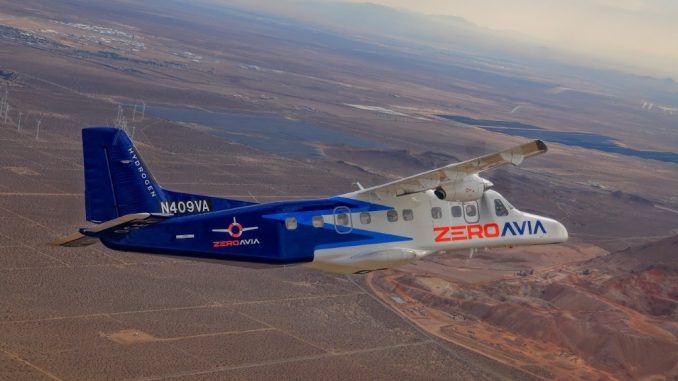
ZeroAvia today announced the UK Government has awarded the company and consortium partners a grant towards a UKP10.8m project to develop a novel liquid hydrogen management system. The project, co-funded through the ATI Programme, will culminate in integration of the lightweight fuel system into a Dornier 228 before a series of flight tests.
The Liquid Hydrogen System Integration & Flight Test (LH-SIFT) project will rapidly develop a Liquid Hydrogen Management System (LHMS) and create an adaptable flight testbed capability, said the company in a press release. The testbed capability will benefit UK and global LH2 supply chains in maturing liquid hydrogen technologies faster.
“The LH2 management system developed as part of LH-SIFT is comprised of a novel lightweight metallic tank design and supporting systems for filling and managing storage and distribution. Consortium partners Green Resource Engineering and Gas & Liquid Controls will collaborate with ZeroAvia on fill, feed, vent and vaporiser systems.
“The project will also establish the world’s first liquid hydrogen flying commercial airframe testbed, providing unique opportunities for later projects to develop and test cryogenic aviation fuel system components in flight, building strong UK leadership in this area.
ZeroAvia is advancing certification of a 600kW hydrogen-electric powertrain for 10-20 seat aircraft using gaseous hydrogen fuel.
“However, the company is also developing the next generation of fuel cell aircraft engines with its ZA2000 for 40-80 seat aircraft, and supporting other high-power use cases through its component offering,” said the company. “To support these aircraft’s typical missions, it is necessary to transition to liquid hydrogen fuel storage – storing fuel at cryogenic temperatures around -253°C – which enables more energy by volume. In addition to fuelling larger aircraft platforms, smaller zero-emissions aircraft can also benefit from using liquid hydrogen to extend their capability.
James McMicking, Chief Strategy Officer, ZeroAvia, said: “Liquid hydrogen is needed to achieve the volumetric and gravimetric energy density required by larger zero-emission aircraft that no other solution offers. This project will drive further evolution of liquid hydrogen technology and provide the capability to test and validate these in-flight and through refueling operations. It will help to unlock investment from the wider aerospace ecosystem that can scale zero-emission aircraft technology and the supporting hydrogen airport infrastructure. With UK capabilities at the heart of this project, it represents a great opportunity for the UK’s advanced manufacturing supply chain.”
Last month, ZeroAvia announced the establishment of its Hydrogen Centre of Excellence for manufacturing fuel cell systems at the Advanced Manufacturing Innovation District Scotland in Glasgow. The LH-SIFT project will bolster the expertise ZeroAvia has established at its main UK base in Gloucestershire around liquid hydrogen fuel management.
For more information
(Image: ZeroAvia)

